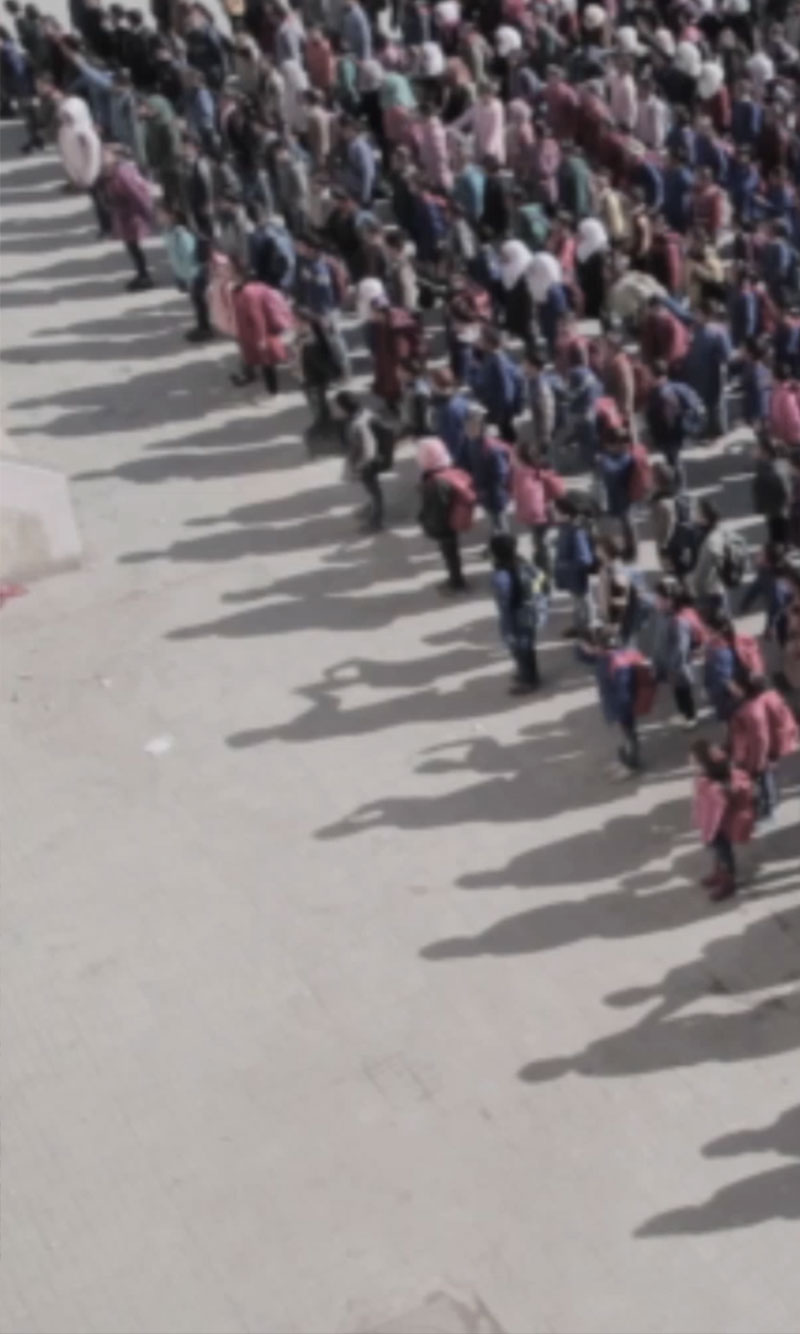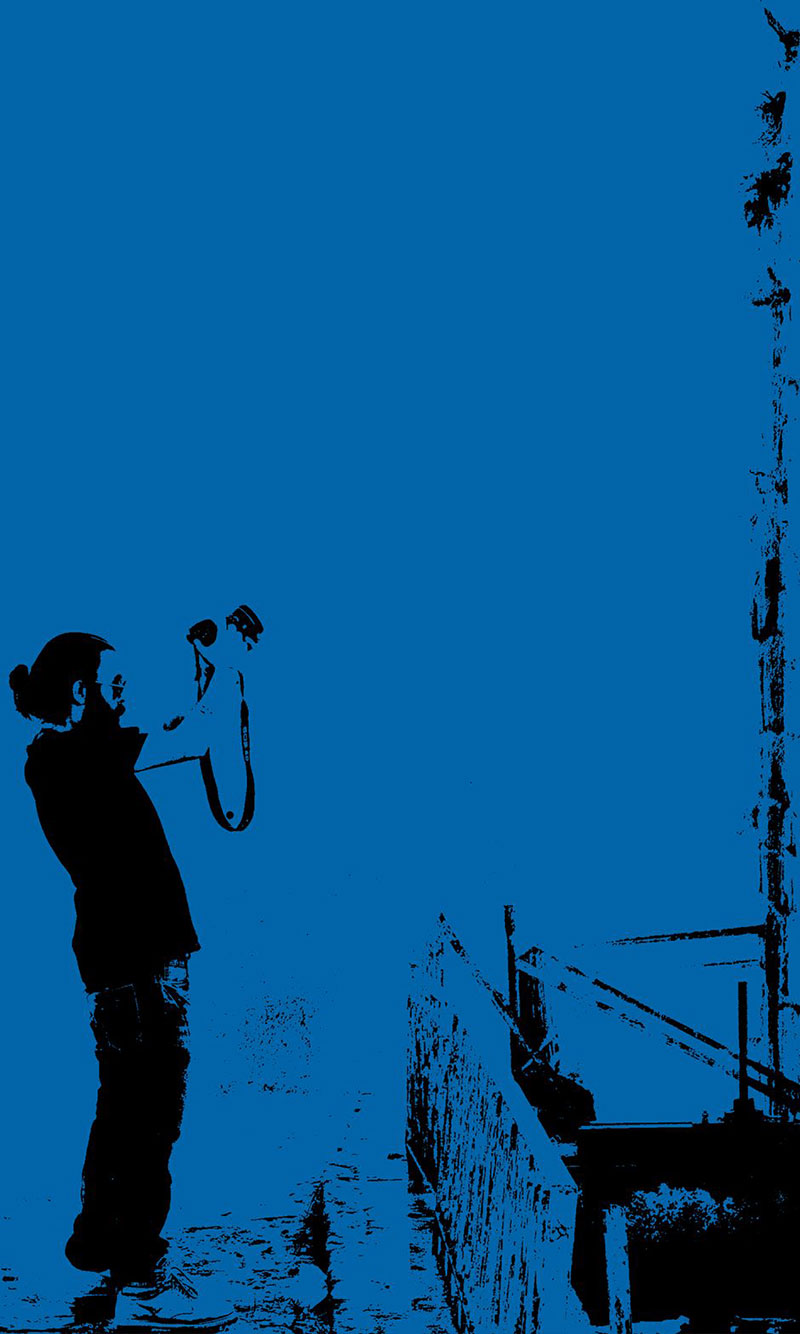Simon Safieh... Our Life Is a ‘Can of Sardines’
Al-Akhbar Newspaper – Ali Wajih, Tuesday, March 17, 2015
Simon Safieh came from political science studies and the film club in Tartous. The Syrian filmmaker (born 1988) is part of a fresh generation that discovered its cinematic obsession early on. He was undeterred by the absence of a national film school, instead relying on self-initiative and personal dedication.
After several workshops, he worked with Joud Said as a trainee assistant director on My Last Friend (2012), then as assistant director on Waiting for Autumn (unreleased).
He also worked on the sets of February 29 (2012) by Mohannad Kulthum, Violet Fires (a working title, unreleased) by Mohamed Abdel Aziz, and The Bus (unreleased) by Youssef Al-Youssef. He quickly launched his own filmography with the experimental Not Just an Apple (2012 – 1 min), followed by the fiction short Why? (2013 – 8 min – General Organization for Cinema – Youth Cinema Support Project). In this film, one can spot signs of the director’s emerging voice. Aktham Deeb’s screenplay follows a love story in a coastal setting, presenting the issue of civil marriage with surreal undertones and a classic editing approach.
Why? may be considered a transitional stage in Safieh’s thinking and perspective. A year later, he returned with Julia(2014 – 16 min, General Organization for Cinema – Youth Cinema Support Project), showing notable growth in scriptwriting, directing, style, and scene composition. With lightness, calm structure, and minimal dialogue, the film explores the aftermath of the brutal rape of Julia, set against the backdrop of the Syrian war—touching on a taboo that remains unspoken in many broken families. For Julia, he won Best Director at the 1st Youth and Short Film Festival in Damascus and is preparing to participate in the official competition of the first Alexandria Short Film Festival (April 7–12, 2015) in Egypt.
In the documentary field, Safieh made The Tunnel (2013 – 25 min, Poor Film), following the daily lives of Syrian refugees living in a pedestrian tunnel in Tartous. Poor Film continued its mission to create independent Syrian films. Most recently, Safieh completed his debut feature film, Sardine Tries to Fly, which he wrote and directed.
Almost in secret, cameras rolled again in Tartous. The film intertwines two main lines in the heart of the Syrian tragedy: a fictional one following Firas, a teacher trying to reclaim his life after being officially declared dead, and a documentary line through his friend Ward, a filmmaker seeking a new cinematic identity. Between fiction and documentary, both are searching for a new sense of being, prompting the question: “What if all the dead came back to life?”
Safieh handled cinematography alongside Ward Haidar and Mehran Youssef. The cast includes Mohammad Abdullah Ali, Mohsen Abbas, Nancy Khoury, Ward Haidar, Nour Ghanem, Rami Al-Khatib, and Ali Mansour.
Speaking to Al-Akhbar, Safieh recalls:
“I spent two years working on a different project—writing the script, casting the lead, estimating a budget. Then suddenly, the question struck me: What if the dead came back to life? I asked a lawyer about the legal procedures and wrote for three days non-stop.” He continues, “After three months of prep for Poor Film’s new project, we shot for one month in my hometown.”
In a notable attempt, Simon and a few friends tried to finance the film through crowdfunding. This important initiative, which could have been a breakthrough for launching a new independent Syrian cinema, unfortunately failed. So what’s the alternative? Safieh answers, “Mehran Youssef provided the equipment for free. The actors worked without pay. My family covered a large portion of the filming costs. Numbers don’t matter in the face of so much love.”
Asked about the film’s title, he explains: “A creature trying since birth to breathe above the water. It moves in swarms, is caught in swarms. For the first time, it leaves the water only to crash into death—then gets canned and shelved with an expiration date. How much this resembles our life path.”
How does Sardine Tries to Fly compare with his previous films? What does it introduce anew?
Safieh replies: “As in Julia, I follow a specific individual and try to portray all aspects of his story. Other than that, this is a completely different experience—death invades life. Firas, a teacher and a lover, returns to life after three years. He examines how things turned out within his small circle (family, lover, friends) and the broader one (the city, the country).”
He adds: “What’s also new is the realistic portrayal of the Syrian coast—something unlike how it’s been depicted before.”
Regarding the filmmaking process, he explains: “I tried to break the rules of editing and axis continuity. This decision emerged from the core idea and the blend between fiction and documentary. Reality is shown as it is, from shooting locations to character language.”
Safieh concludes: “We’re now in the ‘editing camp’ (editing and graphics by Ibrahim Melhem), working around the power supply. We’re pushing to the last amp of the battery. There’s some confusion, but plenty of joy.”



